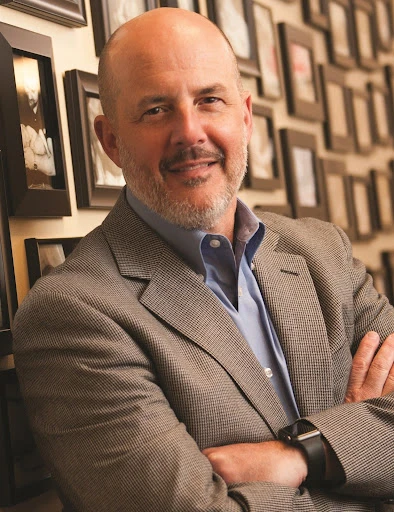CNA Staff, May 4, 2025 /
07:00 am
Dr. Christopher Stroud was a Catholic OB-GYN who prescribed birth control and gave referrals for in vitro fertilization (IVF) until a priest admonished him in the sacrament of reconciliation. Now Stroud runs a life-affirming fertility clinic that uses Natural Procreative Technology — a treatment model that embraces life-affirming Catholic ethics.
“It changed my life,” Stroud said of the confession. “Probably for all eternity, it changed my life.”
Stroud said he still “get[s] emotional” just talking about the impact of the clinic. Couples send him photos of their babies — it has grown into a wall of photos now.
Since his change of heart in 2012, his practice has “just exploded.” The clinic has grown so popular that there’s a six-month wait period.
“We are blessed with a busy, busy practice,” he told CNA.
While Stroud’s clinic is based in Fort Wayne, Indiana, he received his training in Nebraska at St. Paul VI Institute — an organization founded in 1985 that trains doctors in “NaProTechnology.”
And the demand for NaProTechnology? It’s “unlimited,” Stroud said.

What makes NaPro different?
NaProTechnology is “a problem-based approach to fertility challenges,” Stroud explained.
The model is “a recognition, more than anything, that infertility is a symptom — it’s not a diagnosis,” Stroud explained.
Rather than jumping to IVF — which is often expensive, arduous, and carries ethical issues with the creation of unused embryos — NaProTechnology applies basic principals of contemporary medicine to fertility treatment.
“Everywhere else in contemporary medicine, we use symptoms to point to a disease state, and then we treat the disease state; then we ask, did the symptom go away?” Stroud said.
But with the advent of IVF in the late 1970s, doctors were taught to promptly refer clients for IVF, Stroud explained.
NaProTechnology is highly effective, Stroud has found. Fertility specialists can address the underlying health issues preventing conception “more times than not,” he said.
Teresa Hilgers, an OB-GYN at the St. Paul VI Institute, added that NaProTechnology often brings a couple’s fertility “back to life.” She said she has seen “so many” couples who, with the help of NaProTechnology, “no longer need medical support to achieve future pregnancies.”
(Story continues below)
Subscribe to our daily newsletter
Talking about IVF
Stroud emphasized that while IVF is against Church teaching, IVF is a challenging issue to talk about. It’s important to acknowledge that the children created through IVF are created in God’s image, Stroud said.
“Any time we have a chance to say [it], we must say that the children created by IVF are children of God — created in his image and likeness,” Stroud said.
“We’ve got to remember that as Catholics, we’re not condemning, we’re educating,” Stroud continued. “And the people that we’re talking to often are very, very wounded and vulnerable.”
When discussing IVF, Stroud noted that “we’ve got to remember the vulnerable, horrible pain that couples are experiencing.”
“I can’t think of another marital stress that could ever hold a candle to infertility because it forces couples to question what it means to be man and woman, what it means to be married, what it means to be intimate,” Stroud said.
“But children are a gift. They’re not a right,” Stroud said. “If they were a right, they’d be property, which is part of the problem with IVF — they do become property.”

The Catholic perspective
IVF is contrary to the Catholic Church’s teaching. But why?
There are several layers to understanding the Church’s teaching on IVF. Most obviously, there’s the high cost of life in IVF.
“IVF is very destructive,” Hilgers said. “Many babies are lost to create one new life.”
The remaining human embryos conceived via IVF often remain in frozen storage for an indeterminate amount of time — often never to grow up.
“[Couples] may have finished their fertility journey, but they do not know what to do with their remaining frozen embryos,” Hilgers said.
IVF also contradicts the Church’s understanding of the purpose of sexual intercourse within the union of marriage.
“The Church teaches that the act of sexual intercourse has two aspects: procreative and unitive. These are inseparable,” Hilgers said. “IVF separates the procreative and unitive acts of intercourse between a married couple.”
The Catechism of the Catholic Church (No. 2377) states that IVF is “morally unacceptable” because it separates the marriage act from procreation and establishes “the domination of technology” over human life.
But there’s also a biological and medical argument against IVF, both Hilgers and Stroud noted.
“Many do not realize that IVF is not good medicine,” Hilgers said.
“The success rates are lower than most think,” she said. “A lot of couples go through IVF and fail.”
IVF can bring with it additional risks, including higher complication rates with pregnancy, higher preterm labor, and even higher risk for birth defects, Hilgers added.
When Stroud meets with patients who are considering IVF, he begins by asking them: “Why?”
“The thing that I say to the couple is: Wouldn’t you like to know why you’re not getting pregnant — even if it means you’re never going to be pregnant — wouldn’t you like to know?” he said. “I’ve never had a couple say, ‘Actually, no, we don’t care.’”
For couples with infertility
Both Hilgers and Stroud emphasized that IVF is far from the only option for couples struggling with infertility.
When asked what he would say to couples struggling with infertility, Stroud said: “Don’t settle.”
“You don’t have to settle as a couple, and you don’t have to choose between the tenets of your faith and your fertility,” Stroud said. “Unexplained infertility is, more times than not, uninvestigated infertility.”
“Many couples who undergo IVF are never given a diagnosis for why they have infertility,” Hilgers added. “They are often told that their infertility is ‘unexplained.’”
But “their infertility is unexplained because a proper evaluation was never done,” Hilgers said.
When asked about the impact of NaProTechnology on families, Hilgers said that by respecting Church teaching on love and life, the human dignity of all involved is also respected.
“When these teachings are respected, then the dignity of everyone involved, the woman, her husband, and children are respected,” she said.


















